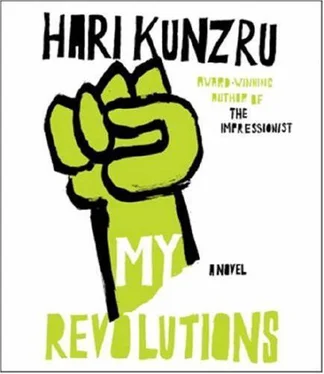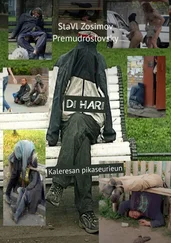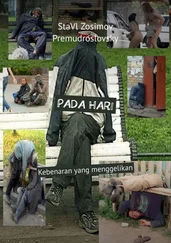“Why are you here, Miles?”
“Pure chance. It seems almost spooky.”
Unless he was prepared to be honest, I wasn’t going to put up with any facile chumminess. And I knew he could keep it up, his flow of nostalgic bullshit. Miles could always talk.
I remembered, in the cells at Bow Street, how he’d crossed his legs and begun to speak lucidly and with surprising passion about his work as a revolutionary filmmaker, how he took advertising reels and old information films and cut them together with his own footage of the alienated lives of cleaners and shop workers and the purposeful lives of political activists and young people moving out of the cities to create a new existence in the countryside. He wanted to illustrate the existential poverty of the System. He wanted to propagandize for internationalism, for a free and progressive style of life. He’d
been to America, and to Sweden. Things were very free in Sweden. “Cinema is a weapon,” he said, “for changing consciousness.”
I was uncomfortable with the topic of consciousness, which was a problem, since in those days it came up a lot. It lay in that gray area between the personal and the political where I found a lot of things got jumbled up with one another. I’d smoked a little dope, but that was as far as I’d got with drugs. I’d never meditated. And as for political consciousness, I tended to rely on a small storehouse of slogans. All liberation depends on the consciousness of servitude. That was one of mine. Before Miles arrived in the cell, I’d been trying to steel myself by thinking politically. I’d told myself my anxiety over getting arrested was just a symptom of class privilege: other young men, born in Biafra or Vietnam, didn’t have the luxury of worrying about their safety, let alone their career prospects or whatever I thought I might be risking. I felt threatened by Miles, by his six-guinea shoes and his interesting-sounding life. The other prisoners were listening in and I didn’t want to be exposed as a scared suburban kid. So I went on the attack. “Oh, yeah?” I sneered. “So how come the police took your camera? Not much of a weapon, at the end of the day.”
“What, precisely, would be a suitable weapon?”
“Well, what would you rather have in your hand next time they come to arrest you? A camera or a gun? It’s going to take more than montage to start the revolution.”
“Interesting. Are you perhaps a member of a group?” He put an odd sarcastic emphasis on the word.
“I’m cochair of the VAG — the Vietnam Action Group. It’s a student organization.”
“I see.” He appeared to think for a moment, then asked in a low voice whether I’d known about the plan to storm the embassy.
I shrugged and told him there had been talk. I told him the rumor about snipers, that if anyone had tried to get through the door they’d have been shot.
“We could have done it, you know,” he said. “In my opinion, we could have taken the place.”
“You think?”
“Well, you didn’t back down, did you?”
“No, I suppose not. But most people did. There didn’t seem to be the energy to do it. The will.”
“I thought a lot of people wanted to go for it. I’m sure you and your friends, for example, in the Vietnam — what was it?” “Action Group. No, not them. They’re not particularly serious.” “But you are.”
“Of course. It looks like there’s a chance for change and I think we ought to take it.”
“Ah, yes. Change.”
Everyone in the cell was listening to me now. I felt I had the upper hand. “No one else is going to do it, if we don’t. No one else is going to build the revolution. I think we owe it to the future.”
“But what kind of future will it be?” he asked, leaning across again and gripping my arm. “What exactly? That’s the question.” “Free,” I said, suddenly uneasy.
“Yes, I know. But what would it look like?”
“What do you mean?”
“Picture it in your head. What’s different? How does it work? How do they do things? What do you see?”
I saw myself walking down the street smiling. I saw a sunny day. Everything I saw looked like an advertisement.
“People,” I lied. “People together.”
Miles looked deflated. “I think I’ve got TB,” he said, rubbing his chest. “It’s hard to tell.”
I was angry with myself. Was that really all I could imagine? Not even to have a picture of freedom. How abject. How bleak. “So what do you think is in the future?” I asked. “What do you see?”
Miles considered the question for a moment. “Action. It’s where everyone’s at now. Either shit or get off the pot.”
“And what about us?”
He laughed and made a vague expansive gesture with his arms.
I saw he was extremely thin: underneath his jacket his shirt hung off his body in folds.
“Oh, I think they’ll let us out one day.”
“Don’t patronize me. That’s not what I meant.”
He stared at me with what appeared to be pity, then stood up and went to the door, banging it with his fist. “I want to see my lawyer!” he shouted. “Do you hear, pig? Get me my fucking lawyer.” Then he turned and said something that at the time seemed snide and hectoring, but which later I realized I agreed with.
“It’s not about how you feel, you know. How you feel isn’t the point.”
The door was opened by the sallow custody sergeant. “You,” he said to Miles. “Come with me.” Miles brushed his jacket with his hands. “Catch you at the revolution, I expect.”
Under the Market Cross, Miles bathed me in a warm stream of nostalgia. So much water under the bridge! Old comrades, painful memories, oughtn’t we to head for the pub? I knew I had to get away from him. I couldn’t think straight. “I don’t drink,” I told him, standing up. “Nice to see you, Miles, but I’ve got to go.”
He looked aghast. “You’re kidding. Twenty-five years, you can’t just walk off. We were friends. I’ve pieced together a lot about what went on since that day you came to the boat, but you and I never talked, not really. What happened to you? Where have you been?” I realized he’d read me all too accurately. He knew part of me wanted to tell my story. His voice became mellifluous. “You really should stay and talk.”
“About what?”
Anna, I expected him to say. I needed to hear her name from someone else’s lips. Anna . Instead he made an offer. “Why don’t you come and see me in London?”
“Why?”
“Come on, Chris. Don’t be such a spoilsport.”
“Mike,” I said, walking away, “my name’s Mike.” I turned down a side street that led in the opposite direction from the bookshop.
Halfway along it I ducked into a narrow lane and waited in a doorway. When I was certain he hadn’t followed me, I doubled back toward Pelham’s. The streets and the shoppers felt remote, as if they were on the other side of a pane of glass.
At the bookshop, I turned the sign on the door to “closed” and wondered, for the first time, about running. I’d done it before. I imagined packing a case, heading to an airport. There was money in our joint bank account. How long would it last me in Asia, in South America? The idea of leaving Sam and Miranda was unthinkable. I sat frozen in God’s worn leather wing-backed chair, trying to work out the angles. What did Miles want? What did it have to do with Anna? I knew that if I was to save myself, I’d need to face certain things I’d always avoided; I’d need to go over it all again. There was an unsorted box in the basement I’d looked into just once, then ignored. I went down to fetch it. Underneath a layer of old sociology textbooks and blue-spined Pelican paperbacks was a cache of pamphlets and yellowing newspapers that I tipped out onto one of the frayed Persian rugs. There were copies of International Times and Frendz and Black Dwarf , flyers for meetings and demonstrations. In a slew of handbills and pamphlets, I found what I’d been looking for: traces of myself. There were several copies of Red Vanguard , a socialist paper that had, for a few issues, been printed in a workshop below the room where I slept. They’d run one of our communiqués, an early one, written before we got tangled up in self-justification. I remember lying with Anna on the mattresses at Thirteen, drafting it in a notebook:
Читать дальше












